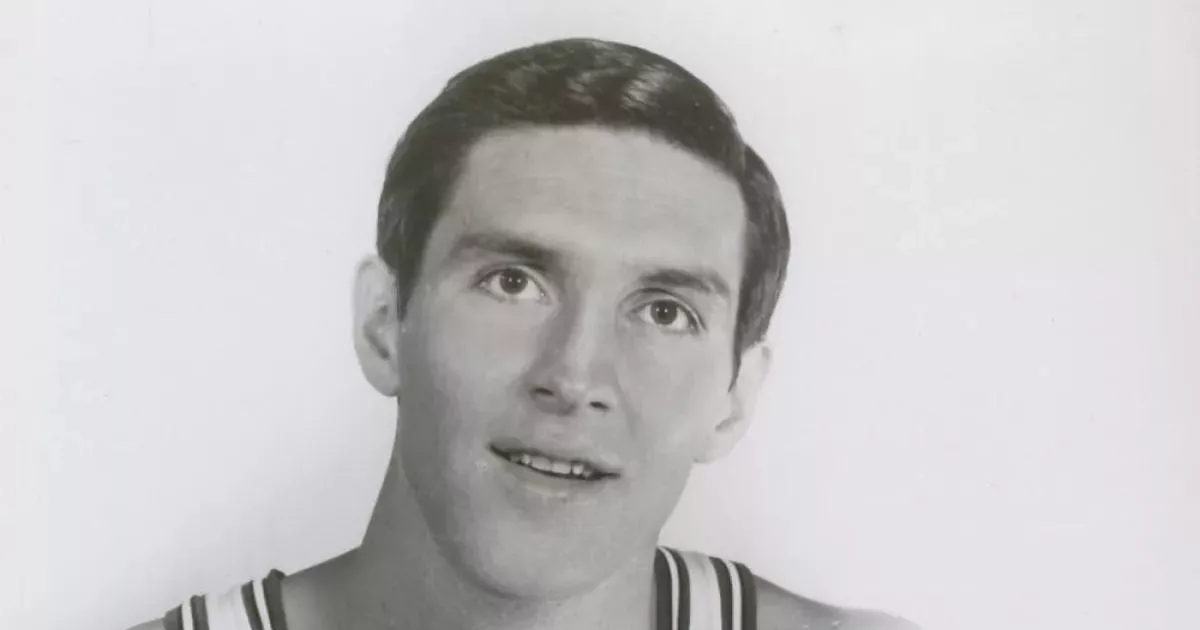Jerry Sloan was a renowned American basketball player and coach, known for his long and successful career with the Utah Jazz. He played 11 seasons in the NBA and then coached for 30 years, 23 of those years as the head coach of the Jazz. His dedication and impact on the sport earned him widespread recognition as one of the greatest NBA coaches, culminating in his induction into the Naismith Memorial Basketball Hall of Fame in 2009.
March 28, 1942: Birth of Jerry Sloan
On March 28, 1942, Jerry Sloan was born in Gobbler's Knob, Illinois.
1960: Jerry Sloan Graduates High School
Jerry Sloan graduated from McLeansboro High School in 1960, where he earned recognition as an all-state basketball player.
1962: Jerry Sloan Begins College Basketball Career
Jerry Sloan began his college basketball career at Evansville College (now known as the University of Evansville) in 1962, joining the Purple Aces.
1963: Jerry Sloan Named Indiana Collegiate Conference Player of the Year
Jerry Sloan's exceptional skills on the court earned him the title of Indiana Collegiate Conference (ICC) Player of the Year in 1963.
1964: Jerry Sloan Selected in the NBA Draft While Still in College
Jerry Sloan's talent was recognized by the NBA when he was chosen as the 19th overall pick by the Baltimore Bullets in the 1964 NBA draft. However, he opted to remain in college for another year.
1965: Jerry Sloan's College Basketball Success and NBA Draft Selection
Jerry Sloan concluded his successful college basketball career with the Evansville Purple Aces in 1965, leading them to their second consecutive Division II national championship. Notably, he was selected by the Baltimore Bullets in the 1964 NBA draft but chose to continue playing college basketball.
1965: Jerry Sloan Joins the Baltimore Bullets
Jerry Sloan officially began his NBA career with the Baltimore Bullets in 1965 after being drafted by the team.
1965: Jerry Sloan Drafted into the NBA
Jerry Sloan's NBA journey began in 1965 when he was selected by the Baltimore Bullets as the fourth overall pick in the draft.
1966: Jerry Sloan Joins the Chicago Bulls
In 1966, Jerry Sloan was selected by the Chicago Bulls during the NBA expansion draft, marking the start of his significant tenure with the franchise.
1970: Jerry Sloan Achieves Scoring Milestone
Jerry Sloan showcased his offensive prowess by averaging over 18 points per game during the 1970-71 NBA season.
1976: Jerry Sloan Briefly Accepts, then Withdraws from, Evansville Coaching Position
In 1976, shortly after his retirement as a player, Jerry Sloan briefly accepted the head coaching position at his alma mater, Evansville College. However, he decided to withdraw from the position after only five days. Tragically, later that season, the Evansville basketball team and coaching staff were involved in a fatal plane crash.
1976: Jerry Sloan Retires from Playing Basketball
Jerry Sloan retired from playing in the NBA in 1976 due to recurring knee injuries, concluding a successful playing career.
1976: End of Jerry Sloan's Playing Career with the Chicago Bulls
Jerry Sloan's time as a player for the Chicago Bulls concluded in 1976, marking the end of his playing days in the NBA.
1978: Chicago Bulls Retire Jerry Sloan's Number
In recognition of his contributions to the franchise, the Chicago Bulls retired Jerry Sloan's number 4 jersey in 1978, making him the first player to receive this honor from the team.
1979: Jerry Sloan Becomes Head Coach of the Chicago Bulls
Jerry Sloan's coaching career with the Chicago Bulls took a significant step forward in 1979 when he was promoted to the position of head coach.
1984: Jerry Sloan Briefly Coaches in the Continental Basketball Association
Before joining the Utah Jazz, Jerry Sloan had a short stint as the coach of the Evansville Thunder in the Continental Basketball Association (CBA) in 1984. However, he did not end up coaching any games for the team, as he accepted an assistant coaching position with the Jazz.
December 1988: Jerry Sloan Hired as Utah Jazz Head Coach
Jerry Sloan officially began his highly successful tenure as head coach of the Utah Jazz in December 1988.
1988: Jerry Sloan Becomes Head Coach of the Utah Jazz
Jerry Sloan was appointed as the head coach of the Utah Jazz in 1988, marking the start of his long and successful tenure with the team.
1988: Start of Jerry Sloan's Tenure with the Utah Jazz
This year marked the beginning of Jerry Sloan's incredible journey with the Utah Jazz, a period that would see him become one of the most successful coaches in NBA history.
1989: Start of Utah Jazz Playoff Streak under Jerry Sloan
The 1989 season marked the beginning of an impressive streak of 15 consecutive playoff appearances for the Utah Jazz under the leadership of coach Jerry Sloan.
April 1993: Jerry Sloan's First Suspension as Coach
In April 1993, Jerry Sloan received his first suspension as a coach for pushing referee Bob Delaney, highlighting his passionate and sometimes fiery demeanor on the court.
1997: Utah Jazz Reaches NBA Finals
In 1997, Jerry Sloan led the Utah Jazz to the NBA Finals for the first time in franchise history. They faced off against the Chicago Bulls but ultimately fell short of the championship.
1997: Utah Jazz's First NBA Finals Appearance under Jerry Sloan
Under Jerry Sloan's leadership, the Utah Jazz reached the NBA Finals in 1997, where they faced off against Michael Jordan and the Chicago Bulls. The Jazz put up a valiant effort but ultimately fell short of capturing the championship.
1998: Utah Jazz's Second Consecutive NBA Finals Appearance
In 1998, Jerry Sloan guided the Utah Jazz back to the NBA Finals for the second consecutive year, once again facing the Chicago Bulls. Despite their best efforts, they were unable to overcome the Bulls and secure the championship.
2001: Jerry Sloan Becomes Longest-Tenured Coach in Major League Sports
Following the departure of Tom Kelly as manager of the Minnesota Twins in 2001, Jerry Sloan earned the distinction of being the longest-tenured head coach among major league sports franchises with their current team.
2003: Jerry Sloan's Second Suspension as Coach
A decade after his first suspension, Jerry Sloan was again disciplined in 2003 for pushing referee Courtney Kirkland, showcasing his continued intensity as a coach.
2003: Retirement of Karl Malone and John Stockton from the Utah Jazz
The 2003 season marked a significant turning point for the Utah Jazz as long-time stars Karl Malone and John Stockton announced their retirements from the team.
2003: End of Utah Jazz Playoff Streak and Retirement of Key Players
The Utah Jazz's playoff streak under Jerry Sloan came to an end in 2003. This year also saw the retirement of star players Karl Malone and John Stockton, marking a significant transition for the team.
2004: Jerry Sloan Receives Coach of the Year Votes
Despite facing low expectations after the departure of key players, Jerry Sloan led the Utah Jazz to a respectable 42-40 record in the 2003-04 season. His coaching acumen earned him votes for the NBA Coach of the Year award.
2004: Jerry Sloan's Wife, Bobbye, Passes Away
In 2004, Jerry Sloan experienced a personal loss when his wife, Bobbye, to whom he had been married for 41 years, passed away after a long battle with cancer.
2004: Utah Jazz Experiences Disappointing Season
The Utah Jazz faced challenges during the 2004-05 season, resulting in a disappointing overall performance.
2005: Utah Jazz Faces Another Challenging Season
The 2005-06 season proved to be another difficult one for the Utah Jazz, as they struggled to achieve their desired level of success.
December 11, 2006: Jerry Sloan Achieves 1,000th Career Win
Jerry Sloan reached a historic coaching milestone on December 11, 2006, when he secured his 1,000th career victory. This achievement placed him among an elite group of only five coaches in NBA history to reach this mark.
2006: Charles Barkley Introduces Jerry Sloan at Hall of Fame Induction
Adding a personal touch to the event, Jerry Sloan chose Charles Barkley, a 2006 Hall of Fame inductee, to introduce him at his induction ceremony.
2006: Jerry Sloan Marries Tammy Jessop
Two years after the passing of his first wife, Jerry Sloan married Tammy Jessop in Salt Lake City in 2006.
May 15, 2007: Utah Jazz Advances to Western Conference Finals
On May 15, 2007, Jerry Sloan guided the Utah Jazz to the Western Conference finals after a hard-fought series victory against the Golden State Warriors. This marked the sixth time in franchise history that the Jazz had reached the conference finals, with all six appearances coming under Sloan's leadership.
2008: Jerry Sloan Achieves 1,000 Wins with the Utah Jazz
In 2008, Jerry Sloan etched his name in NBA history by becoming the first coach to reach 1,000 wins with a single team, a testament to his enduring legacy with the Utah Jazz.
April 2009: Jerry Sloan Inducted into the Naismith Memorial Basketball Hall of Fame
Jerry Sloan received one of basketball's highest honors in April 2009 when he was inducted into the Naismith Memorial Basketball Hall of Fame alongside his former point guard, John Stockton.
2009: Jerry Sloan Inducted into the Naismith Memorial Basketball Hall of Fame
Jerry Sloan received one of basketball's highest honors in 2009 when he was inducted into the Naismith Memorial Basketball Hall of Fame.
2009: Jerry Sloan Returns to Coach the Utah Jazz
Jerry Sloan returned to lead the Utah Jazz for the 2009-2010 season, guiding them to a 53-29 record and a playoff berth, demonstrating his consistent leadership.
February 7, 2011: Jerry Sloan Signs Contract Extension with the Utah Jazz
On February 7, 2011, Jerry Sloan seemingly solidified his commitment to the Utah Jazz by signing a contract extension for the 2011-2012 season, which would have been his 24th season with the team.
February 10, 2011: Jerry Sloan Resigns from the Utah Jazz
In an unexpected turn of events, Jerry Sloan, along with assistant coach Phil Johnson, resigned from their positions with the Utah Jazz on February 10, 2011, citing a decrease in energy as the primary reason.
February 23, 2011: Deron Williams Traded to the New Jersey Nets
Shortly after Jerry Sloan's departure, the Utah Jazz underwent another significant change when point guard Deron Williams was traded to the New Jersey Nets on February 23, 2011, marking a turning point in the franchise's history.
2011: Jerry Sloan Resigns from the Utah Jazz
In 2011, Jerry Sloan resigned from his position as head coach of the Utah Jazz after a remarkable career with the team.
2011: Jerry Sloan's Mid-Season Resignation from the Utah Jazz
Jerry Sloan made the unexpected decision to resign from his position as head coach of the Utah Jazz mid-season in 2011.
2011: End of Jerry Sloan's Tenure with the Utah Jazz
This year marked the end of Jerry Sloan's time as head coach of the Utah Jazz, concluding a remarkable era defined by his leadership and the team's consistent success.
June 19, 2013: Jerry Sloan Returns to the Utah Jazz as an Advisor
Maintaining his connection with the franchise, Jerry Sloan returned to the Utah Jazz on June 19, 2013, taking on the roles of an advisor and scouting consultant.
2013: Jerry Sloan Returns to the Utah Jazz as an Advisor
After a brief hiatus, Jerry Sloan returned to the Utah Jazz organization in 2013, taking on roles as an advisor and scouting consultant.
January 31, 2014: Utah Jazz Honors Jerry Sloan
The Utah Jazz paid a lasting tribute to Jerry Sloan on January 31, 2014, by raising a banner commemorating his 1,223 wins with the franchise, a testament to his remarkable tenure from 1988 to 2011.
April 2016: Jerry Sloan Diagnosed with Parkinson's Disease and Lewy Body Dementia
In April 2016, Jerry Sloan received the diagnosis of Parkinson's disease and Lewy body dementia, marking the start of his battle with these debilitating conditions.
May 22, 2020: Death of Jerry Sloan
Jerry Sloan passed away on May 22, 2020.
Mentioned in this timeline

Basketball is a team sport played on a rectangular court...

Michael Jordan widely considered one of basketball's greatest players significantly...
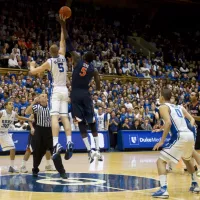
College basketball in the U S is governed by bodies...
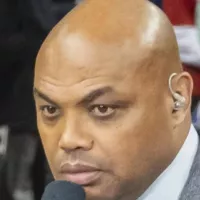
Charles Barkley nicknamed Sir Charles is a retired American professional...

Chicago is the most populous city in Illinois and the...
Illinois is a Midwestern U S state bordering Lake Michigan...
Trending

36 minutes ago Kris Dunn Shines: Steals the Show with Impressive Defensive Performance for Clippers
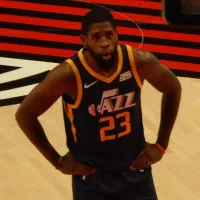
36 minutes ago Queta's Hilarious Clip Evokes Mazzulla Memories: A Lighthearted NBA Moment

36 minutes ago Howard Lutnick faces potential subpoena in Epstein investigation, House Republicans consider deposition.
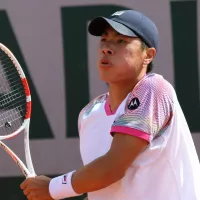
37 minutes ago Nakashima at Acapulco Open 2026: Match Predictions and Results Analysis.
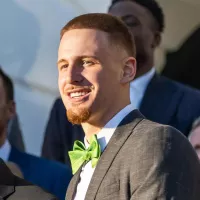
37 minutes ago Donte DiVincenzo's Underrated Impact on Timberwolves: A Deep Dive into His Contributions

37 minutes ago Luka Don?i?'s Botched Play and Sam Mitchell's Criticism Doom Lakers Against Magic
Popular

Jesse Jackson is an American civil rights activist politician and...

Susan Rice is an American diplomat and public official prominent...

Barack Obama the th U S President - was the...

XXXTentacion born Jahseh Dwayne Ricardo Onfroy was a controversial yet...

Michael Joseph Jackson the King of Pop was a highly...

Kashyap Pramod Patel is an American lawyer who became the...
